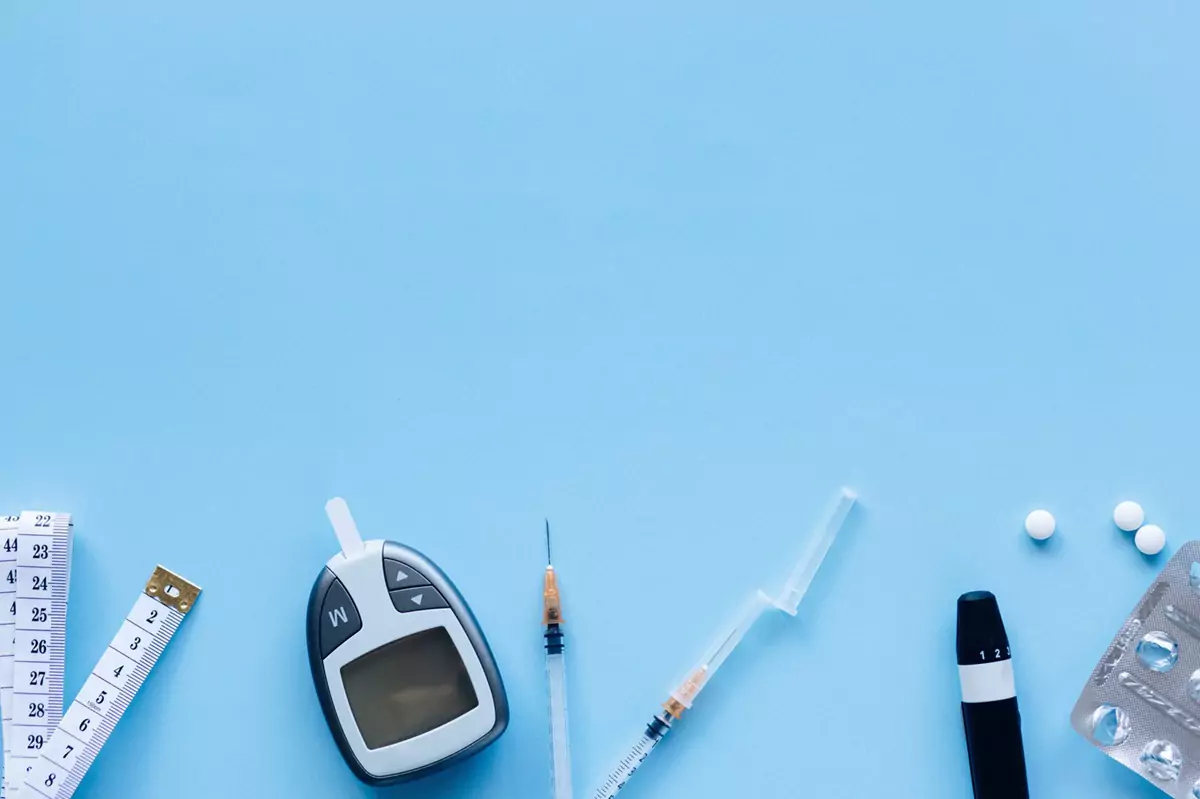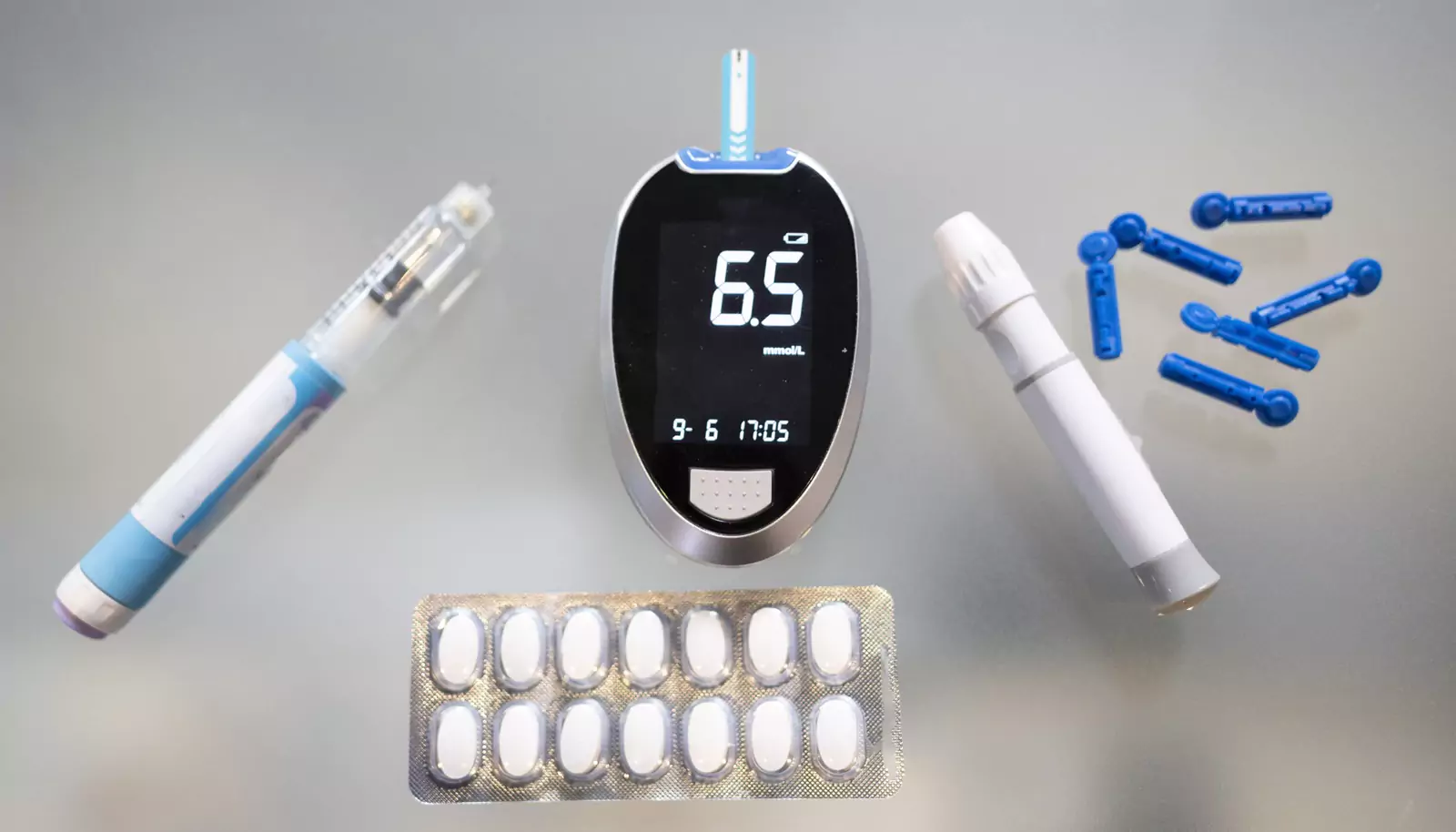






6 Metformin Interactions You Must Know


Table of Contents
- Importance of Metformin Interactions
- 1. Interaction of Carbonic Anhydrase Inhibitors and Metformin
- 2- Drugs Hindering Metformin Elimination
- 3- Interaction between Metformin and Insulin
- 4- Medications Elevating Blood Sugar Levels
- 5- Interaction between Metformin and Alcohol
- 6- Insulin Inducing Medications
- How to Manage Metformin Interactions
- Natural Alternatives to Metformin
- SugarMD Super Berberine
- Conclusion
- About The Author
Welcome! In this exploration, we delve into the intriguing world of pharmaceutical interactions, with a particular focus on metformin. Contrary to what the name might suggest, metformin is not a space-age mineral. Instead, it is a significant player in the healthcare industry, especially for individuals managing diabetes. Let’s explore 6 Metformin interactions you must know.
Metformin is an antihyperglycemic prescription medication commonly used to treat type 2 diabetes. Simply put, it aids in lowering blood sugar levels. Metformin stands as a forerunner in its domain, but it is not without its intricacies. As with any medication, metformin can interact with various other substances which can lead to intriguing consequences.
Importance of Metformin Interactions
The interactions of metformin hold importance because they can potentially result in unexpected outcomes, increased side effects, or diminish the medication's effectiveness. Thus, understanding these interactions ensures that metformin continues to function optimally. Navigating the world of metformin interactions can seem daunting and full of unexpected occurrences.
These interactions involve not only other medications but substances such as alcohol and certain underlying health conditions. In this journey through metformin interactions, we aim to demystify the most notable ones, discuss why they occur and how to manage them. We will also introduce some natural alternatives to metformin for a balanced perspective.
1. Interaction of Carbonic Anhydrase Inhibitors and Metformin
Carbonic Anhydrase Inhibitors (CAIs) may sound intimidating, but they are simply medications commonly used to treat glaucoma, a condition that increases eye pressure. Now, let's consider metformin. Metformin excels in combating diabetes by reducing the amount of sugar that our bodies absorb from food and produce in the liver. But what occurs when metformin encounters CAIs? The interaction between metformin and CAIs can elevate the risk of lactic acidosis.
This condition is essentially a disruption in your body's pH balance, where it fails to eliminate sufficient lactic acid, leading to a build-up.
This accumulation can cause symptoms such as muscle pain or cramps, fatigue, difficulty breathing, stomach discomfort and even a rapid heart rate or irregular heartbeat. This undesirable interaction occurs because both metformin and CAIs can independently increase the risk of lactic acidosis. Therefore, combining these two can potentially exacerbate this risk. Although the risk of lactic acidosis is rare, it remains a factor to consider.
In the realm of drug interactions, foreknowledge equates to preparedness. To manage this interaction, transparent communication with your healthcare provider is vital. If you are taking both a CAI and metformin, inform your doctor. They might adjust your medication dosage, monitor you more closely, or opt for an alternative medication. Your health is of paramount importance and you have a role in ensuring the optimal performance of your medications.
2- Drugs Hindering Metformin Elimination
Certain medications act similarly to over-attached friends, reluctant to let you leave a gathering by yourself. They latch onto Metformin within your system, obstructing its elimination process. Ranolazine (Ranexa) is one such medication. It interacts strongly with Metformin, hindering its elimination from your body. Therefore, if you are taking Ranexa, ensure you monitor your Metformin dosage closely to avoid unintentional overdose.
Vandetanib (Caprelsa) is another drug that inhibits the elimination of Metformin. As a user of Caprelsa, it's crucial to maintain vigilance over your Metformin levels. Overstaying Metformin could lead to undesirable side effects. Moreover, two other drugs, Dolutegravir (Tivicay) and Cimetidine (Tagamet HB), have similar effects. If you're consuming either Tivicay or Tagamet HB along with Metformin, monitor your body's reactions meticulously to prevent unexpected complications.
So, why do these medications inhibit the removal of Metformin? These drugs impair the kidneys' capacity to clear Metformin from the bloodstream, potentially leading to elevated Metformin levels in the blood.
3- Interaction between Metformin and Insulin
While Metformin and Insulin may seem like a potent duo from a blockbuster film, in reality they are two vital components in managing diabetes. Insulin is a hormone that helps regulate glucose levels in the body. It permits glucose entry into cells for energy, while Metformin reduces the liver's glucose production and enhances insulin sensitivity. However, when Metformin and Insulin work together, it's akin to a superhero alliance against high blood sugar levels.
Yet, like any team, complications may arise. Using Insulin and Metformin concurrently can potentially lead to side effects. One possible consequence of their combined usage is hypoglycemia, a condition characterized by excessively low blood sugar levels. Symptoms may include fatigue, shakiness, sweating and sometimes unconsciousness. However, this adverse reaction is not guaranteed and is merely something to be aware of. Moreover, different types of Insulin may interact variably with Metformin.
For instance, premixed Insulin or long-acting Insulin might be more likely to cause low blood sugar when used with Metformin. Thus, it is imperative to discuss with your healthcare provider about your specific Insulin type and how it might interact with Metformin.
4- Medications Elevating Blood Sugar Levels
First on our list are Corticosteroids, for example, prednisone. While this group of medications is frequently prescribed for various conditions such as inflammation and autoimmune diseases, it can also surreptitiously raise your blood sugar levels. Thiazide diuretics, including hydrochlorothiazide (Microzide) and chlorthalidone, come next. Primarily used to treat hypertension and assist in excess salt and water elimination these drugs, unfortunately, tend to increase blood sugar levels.
Next, we consider antipsychotic medications, including quetiapine (Seroquel), clozapine (Clozaril) and chlorpromazine. While these medications are proficient at maintaining chemical balance in your brain they may disrupt your blood sugar equilibrium.
The list continues with Phenytoin (Dilantin, Phenytek), a drug commonly prescribed to control seizures. However, it might also contribute to elevated sugar levels in your bloodstream. Thyroid medications like levothyroxine (Synthroid, Levoxyl) are administered when your thyroid doesn't produce sufficient hormones.
Despite their effectiveness they could potentially induce an increase in your blood sugar levels. Finally, we examine estrogen-containing birth control pills, such as Sprintec (norgestimate/ethinyl estradiol) and Yaz (drospirenone/ethinyl estradiol) and Isoniazid.
While some of these drugs help regulate your menstrual cycle and others combat tuberculosis they might simultaneously challenge your glucose levels. In conclusion these are some common medications that may increase your blood sugar levels when taken with Metformin. This information aims to facilitate improved management of your Metformin interactions. Stay tuned for more invaluable insights in subsequent sections!
5- Interaction between Metformin and Alcohol
Firstly, it is essential to understand why alcohol disrupts the balance of Metformin in your body. The key factor here is the liver, where both alcohol and Metformin primarily metabolize. Metformin functions to lower blood sugar by decreasing glucose production in the liver. The introduction of alcohol diverts the liver's attention, interfering with Metformin's operation. The liver, attempting to manage both alcohol and Metformin, may struggle to eliminate lactate, a byproduct generated by your muscles.
This could lead to lactic acidosis, a condition that presents symptoms such as nausea, vomiting and muscle pain. In extreme cases, it can escalate to a coma or even result in death. This does not necessarily mean that you must completely avoid alcohol. Moderation is key.
An occasional glass of wine or beer is unlikely to cause harm, but frequent, heavy drinking could pose a risk. It's crucial to exercise caution, particularly if you're not feeling well or have any concerns. Bear in mind that different types of alcohol can influence your blood sugar levels. Spirits and liqueurs often contain sugars that can spike your blood sugar, while beer and sweet wines may cause your blood sugar to drop too low.
6- Insulin Inducing Medications
Embarking on the sixth and final interaction in our compilation, we delve into medications that stimulate the body to release insulin. These medicines, while inducing your pancreas to produce more insulin, can potentially interfere with metformin's action, necessitating more meticulous blood glucose level monitoring. Initially, we have sulfonylureas, encompassing glipizide (Glucotrol XL), glimepiride (Amaryl) and glyburide (Diabeta, Glynase).
While they may appear beneficial in regulating your blood glucose by promoting insulin release the co-administration of these drugs with metformin may precipitate hypoglycemia, a state of dangerously low blood sugar. Following the sulfonylureas are meglitinides, represented by repaglinide and nateglinide (Starlix). Like their counterparts they too stimulate insulin release but require careful management when used alongside metformin. To visualize the scenario, consider your body as a vibrant, active city. Here, insulin resembles a fleet of taxis, delivering glucose to requisite cells.
Metformin serves as an efficient traffic controller, managing glucose transportation to avoid overloading. However, when sulfonylureas or meglitinides enter the picture they increase the insulin "taxis," which might overburden metformin, leading to low blood sugar. If you're on these medications, regular consultations with your healthcare provider to discuss possible metformin interactions are crucial.
Remember to routinely monitor your blood glucose levels. Being informed about these interactions allows for more effective blood sugar management. So there concludes our list! The objective isn't to instill fear, but to provide knowledge, enabling safer metformin use. Share this information with others on metformin, as it's beneficial to all.
How to Manage Metformin Interactions
- Engage in Detailed Discussions with Your Doctor: Begin by having comprehensive dialogues about your health and medications with your healthcare provider. Include your medical history and any current medications or health concerns you may have.
- Adhere to Dosing Instructions: Comply meticulously with the dosing instructions provided with metformin. If recommended to be taken with a meal, ensure you do so.
- Regularly Monitor Your Blood Glucose: Use a reliable device to consistently monitor your blood glucose levels. The collected data can assist your healthcare provider in adjusting your metformin dosage, if needed and provide insight into how various foods and activities affect your glucose levels.
- Stay Informed about Potential Interactions: Metformin can interact with a range of medications and substances. If you start new medications, inform your doctor to avoid undesired interactions.
- Consider Natural Alternatives: If appropriate, discuss natural metformin alternatives, such as alpha-lipoic acid, berberine, chromium picolinate and apple cider vinegar with your healthcare provider. Even though these are natural options they still can interact with other medications and have side effects. Always consult with your healthcare provider before starting any new treatments.
Natural Alternatives to Metformin
As we approach the end of our enlightening discourse on metformin interactions, let's venture into the realm of natural metformin alternatives. While not as potent as metformin these alternatives offer their distinct benefits and present fewer drug interaction risks. Let's traverse this botanical landscape to discover naturally occurring compounds that can aid in managing your blood glucose levels! Our first contender is the powerful antioxidant, alpha-lipoic acid.
Renowned for enhancing insulin sensitivity and mitigating diabetic neuropathy symptoms, it's found in common foods like spinach, broccoli and red meat. However, to reach therapeutic levels, supplementation might be required, necessitating consultation with your healthcare provider.
The second alternative is Berberine. A golden-yellow compound found in numerous plants, Berberine is a traditional Chinese medicinal constituent, documented to lower blood sugar levels comparably to metformin, alongside cardiovascular health benefits. As with all these alternatives, it's essential to consult your healthcare provider prior to use.
SugarMD Super Berberine
SugarMD Super Berberine is an excellent supplement designed to maintain healthy glucose metabolism and reduce inflammation. Distinguished from other supplements, it combines dihydroberberine and 100% pure Ceylon cinnamon to maintain blood sugar within a healthy range. This safe and effective long-term formulation significantly reduces inflammation, a notable contributor to various health issues.
For individuals seeking a supplement to maintain healthy glucose levels while reducing inflammation, SugarMD Super Berberine is an ideal choice. The third alternative is chromium picolinate. This crucial mineral improves insulin efficiency, reduces insulin resistance and aids in carbohydrate metabolism.
Moreover, it's associated with reduced food cravings, a benefit many might find appealing. Lastly the common pantry item, apple cider vinegar, shows promise in enhancing insulin sensitivity and lowering fasting blood glucose levels. In addition to its health benefits, it also adds a tangy flavor to salads. However, moderation is key.
Excessive vinegar can cause stomach discomfort and may interact with certain medications. Always use it in small doses and under the guidance of your healthcare provider. In conclusion, despite metformin's established position in blood glucose management, numerous natural alternatives can provide unique benefits with fewer potential drug interactions.
The golden rule remains: consult your healthcare provider before making any changes to your treatment plan. Diabetes management is a collective effort, with your healthcare provider playing a critical role! Bear in mind that this list is not exhaustive; many more natural alternatives exist. The world is teeming with natural remedies waiting for discovery! Therefore, persist in your exploration and learning and most crucially, continue managing your diabetes in the way that best suits you!
Conclusion
As we conclude our journey through the intricate landscape of metformin interactions, let's encapsulate the knowledge we've accumulated. We've traversed the complex network of six crucial interactions metformin can have with other substances and medications, from the subtly misleading carbonic anhydrase inhibitors to the challenging drugs inhibiting metformin excretion. We've also dealt with medicines that elevate our blood glucose levels or induce our bodies to release insulin.
To manage your interaction with metformin effectively, open communication with your healthcare provider is pivotal. They serve as your navigation guide in this journey, helping you avert potential obstacles and ensuring your path towards effective metformin management is smooth.
Adherence to the prescribed dosage instructions is equally significant. Consider metformin a precision-dependent regimen that requires strict compliance to time and quantity. Coupling this compliance with regular blood glucose monitoring provides an effective tool for managing your health.
Vigilance regarding potential interactions is vital, akin to preventing a confrontation by knowing which elements might not agree with metformin. A robust understanding of the different medications and substances that may conflict with metformin offers a distinct advantage.
While metformin is a commonly prescribed medication for diabetes management, natural alternatives also exist, such as alpha-lipoic acid, berberine, chromium picolinate and apple cider vinegar. Just as some individuals prefer natural diets for their health these alternatives might be a suitable substitute for some. This concludes our exploration of metformin interactions.
This journey has been enlightening and playful, full of valuable insights to navigate the often perplexing world of medication management. We hope this journey has not only enriched your understanding but also reassured you and maybe even entertained you.
Remember, managing metformin interactions isn't an arduous task but a crucial step towards enhanced health. Stay informed, stay safe and retain a touch of playfulness throughout your health management journey.
About The Author
Meet Dr. Ahmet Ergin a highly skilled and dedicated endocrinologist with a passion for diabetes care. Dr. Ergin earned his medical degree with honors from Marmara University in Istanbul. He completed internal medicine residency and endocrinology fellowship at Cleveland Clinic.
Dr. Ergin is board-certified in Internal Medicine, Endocrinology, Diabetes and Metabolism due to his vast medical expertise. He's a certified diabetes educator, author of "The Ultimate Diabetes Book," and founder of "the SugarMD YouTube channel."
Dr. Ergin offers exceptional diabetes care to his patients in Port Saint Lucie, FL, helping them manage effectively. Disclaimer: These statements have not been evaluated by the Food and Drug Administration. Information on this website isn’t intended to treat, cure or prevent any disease. Discuss with your doctor and do not self-treat.
Written By Dr. Ahmet Ergin
456 total articles
Meet Dr. Ahmet Ergin, a highly skilled and dedicated endocrinologist with a passion for diabetes care. Dr. Ergin earned his medical degree with honors from Marmara University in Istanbul. He completed internal medicine residency and endocrinology fellowship at Cleveland Clinic. Dr. Ergin is board-certified in Internal Medicine, Endocrinology, Diabetes, and Metabolism due to his vast medical expertise. He's a certified diabetes educator, author of “The Ultimate Diabetes Book,” and founder of “the SugarMD YouTube channel.” Dr. Ergin offers exceptional diabetes care to his patients in Port Saint Lucie, FL, helping them manage effectively. For a closer look into his insights and experiences, connect with Dr. Ahmet Ergin on LinkedIn, Instagram, and YouTube.”
Disclaimer: These statements have not been evaluated by the Food and Drug Administration. Information on this website isn't intended to treat, cure or prevent any disease. Discuss with your doctor and do not self-treat.
Products















